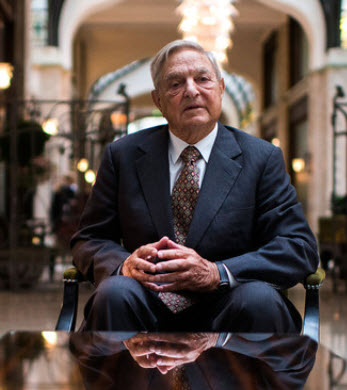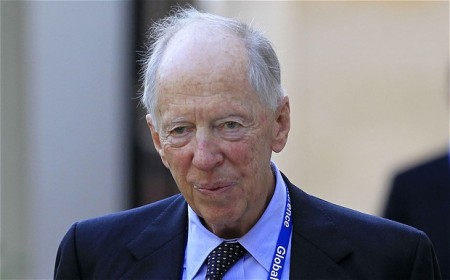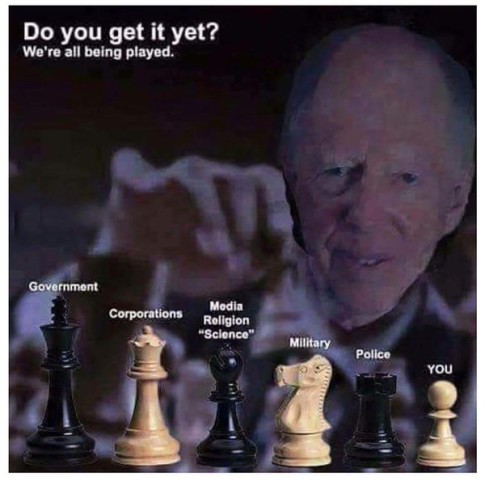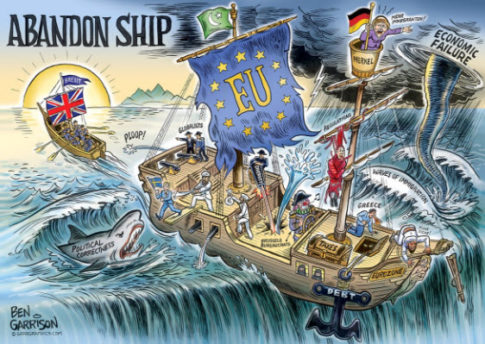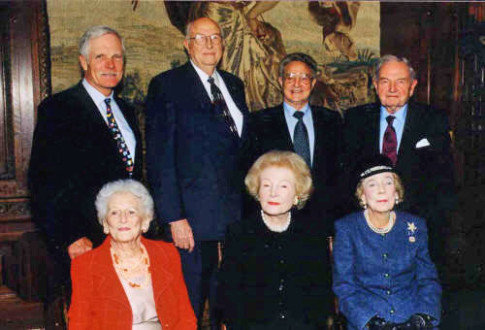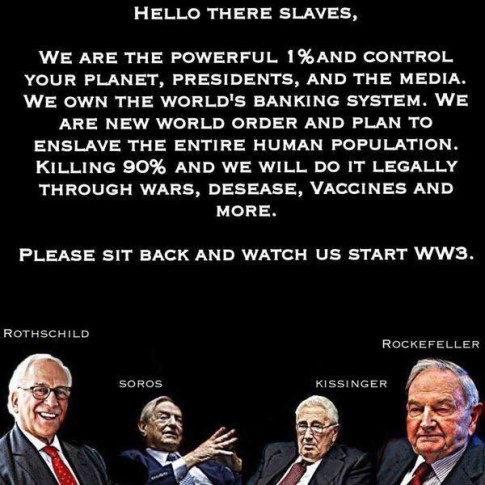The big guns are officially out.
Just yesterday, we recounted the story of “Black Wednesday” when on September 16, 1992, the UK was forced out of the EU’s exchange-rate mechanism, or ERM, when the BOE tapped out and allowed the British pound to float freely, leading to 15% losses in the sterling. As we noted, this was George Soros’ infamous trade which “broke the Bank of England” and made the Hungarian richer by over $1.5 bilion.
24 years later Soros is back, and this time he is warning against the kind of devaluation that made him a billionaire and which he believes will be unleashed by Brexit, when in a Guardian Op-Ed he wrote that U.K. voters are “grossly underestimating” the true costs of a vote to leave the EU, saying that there would be an “immediate and dramatic impact on financial markets, investment, prices and jobs.”
He predicts that the pound would decline “precipitously”, seeing a gargantuan drop of at least 15% and possibly >20% to below $1.15. Considering it has now become trendy for analysts to come up with ever “doomier” forecasts of just how low cable would plunge in case of Brexit, we are surprised Soros stopped there.
Here Soros makes the distinction how the collapse in cable would be different from the one that made him richer by saying that this devaluation wouldn’t be “healthy” like the one in 1992 because BOE wouldn’t cut rates, U.K. has large current account deficit and devaluation unlikely to improve manufacturing exports this time. Just don’t tell that to the BOJ, which would gladly leave the EU – twice if it had to – if it meant a 20% devaluation.
“Brexit would make some people very rich – but most voters considerably poorer”; “there are speculative forces in the, markets much bigger and more powerful” than the speculators that profited from the 1967 devaluation at Britain’s expense. “A vote to leave could see the week end with a Black Friday, and serious consequences for ordinary people.”
Here is the gist of Soros’ scaremongering, from the Guardian op-ed titled “The Brexit crash will make all of you poorer – be warned“:
David Cameron, along with the Treasury, the Bank of England, the International Monetary Fund and others have been attacked by the leave campaign for exaggerating the economic risks of Brexit. This criticism has been widely accepted by the British media and many financial analysts. As a result, British voters are now grossly underestimating the true costs of leaving.
As opinion polls on the referendum result fluctuate, I want to offer a clear set of facts, based on my six decades of experience in financial markets, to help voters understand the very real consequences of a vote to leave the EU.
Of course, Soros’ set of facts may be clouded by his far greater equity stake in equity interests around Europe, and the globe, which would be drastially impacted by not only a Brexit, but by a European Union which is suddenly on the rocks.
From that point on, Soros’ entire analysis is on the “worst case” scenario centered around a collapsing pound, something which most ironically every other central bank around the globe is so desperate to achieve:
… sterling is almost certain to fall steeply and quickly if there is a vote to leave– even more so after yesterday’s rebound as markets reacted to the shift in opinion polls towards remain. I would expect this devaluation to be bigger and more disruptive than the 15% devaluation that occurred in September 1992, when I was fortunate enough to make a substantial profit for my hedge fund investors, at the expense of the Bank of England and the British government.
At least he is honest.
It is notable that Soros’ warning comes just days after that of Jacob Rothschild himself who said in another Op-Ed, this time for The Times, that leaving the EU could lead to a “damaging and disorderly situation” in the UK as he urged Britons to vote ‘remain’. Just like Soros, Lord Rothschild, suddenly exhibiting a rare strain of humanitarian concern, said readers should not “risk the wellbeing of our country”and European countries are “better off together”.
He said that “at present we enjoy being a permanent member of the UN security council and we are essential to the G8 and Commonwealth. But diplomacy, defence, the environment and our values of being a liberal democracy will all be at risk” adding that “I can see no good reason why we should accept our playing a diminished role on the world stage,” especially if his own personal fortune would be jeopardized.
* * *
Finally, completing the doom loop, was none other than Chancellor George Osborne who, according to the Telegraph, “refused to rule out suspending trading on the London stock market if Britons vote to leave the European Union on Friday morning… The threat from the Chancellor, made in an LBC radio interview on Monday evening, after the market had closed could force shares down in London as early as Tuesday morning.”
Iain Dale, the presenter, asked Mr Osborne: “If the financial markets do plummet on Friday would you have to consider suspending trading on the FTSE?”
The Chancellor responded: “Well look, the Bank of England and the Treasury – Governor Carney and myself – we have of course discussed contingency plans.
But the sensible thing is to keep those secret and make sure you are well prepared for whatever happens but if you set them all out in advance then you rather undermine the power of those plans.”
Pushed again on the contingency plans, Mr Osborne said: “I have a responsibility to the people listening to this programme to do all I can to protect them. “But I have to tell you that you cannot in the end protect people from the economic shock that leaving the EU would bring about.”
And in case the threat of shuttered markets was not enough, Osborne also hinted at imminent mass layoffs, suggesting that redundancy notices could be issued hours after Britons vote to leave the EU at the vote.
Mr Osborne pointed to warnings from the London Stock Exchange there would be 100,000 job losses in the City after a Brexit.
Mr Osborne was challenged about whether redundancies warned by the bank JP Morgan could come as early as Friday – the day after the referendum. Mr Osborne replied: “I think that will start to happen very quickly, sadly.”
Amid all this gloom, Osborne presented the “only” alternative that would not lead to the imminent economic collapse he so forcefully imagines:
“he added that if the UK voted to remain there would be a “quick snap back” for the British economy, he said that “decisions will be taken and investment will come in”. Asked if these redundancy notices would be issued on Friday morning if Britons vote to leave, Mr Osborne said: “That will start to happen very quickly sadly.”
Now if only the people will do what these noble public servants tell to do in their own best interest…
Finally, Osborne also played down claims he could be forced to leave the Treasury after the referendum amid anger form Tory backbenchers over the way he has campaigned, saying: “It’s really not about my job”.
Oh but is George, just like it is in Soros and Rothschild’s own self interest for the people to vote “Remain.” To suggest otherwise is naive, but it may also be irrelevant. With just three days until the vote, the scaremongering tactic, not to mention the murder of an innocent woman, may have already done its job judging by the reveral in public opinion.
In any case, one can only hope that unlike the case of the failed Greek referendum where the people voted one way only to get the opposite, no matter how the Brits vote, it will truly represent the democratic will of the majority and that particular outcome is what they get.
* * *
PayPal: Donate in USD
PayPal: Donate in EUR
PayPal: Donate in GBP
* * *
* * *

